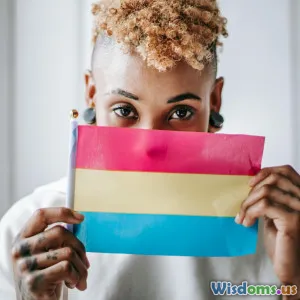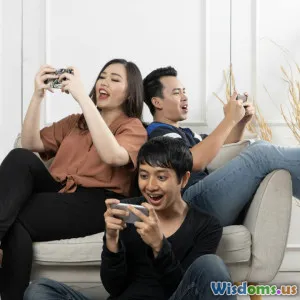
Addressing Gender Bias in Gaming
5 min read Exploring the steps to reduce gender bias in gaming. (0 Reviews)
Addressing Gender Bias in Gaming
Introduction
The gaming industry has become a dominant force in entertainment, yet it grapples with a persistent issue: gender bias. From the portrayal of female characters to the treatment of women in gaming communities, bias permeates various aspects of gaming. This article explores the origins of gender bias in gaming, its implications, and actionable steps to foster a more inclusive environment for all gamers.
Understanding Gender Bias in Gaming
Historical Context
Gender bias in gaming has roots that trace back to the early days of video games, which were predominantly designed by men for a male audience. Early games often featured male protagonists, reinforcing stereotypes about gender roles. As the industry evolved, so did the portrayals, but the bias remained, manifesting in character design, storylines, and marketing strategies.
Current Landscape
In recent years, studies have shown that women make up a significant portion of the gaming community, yet they often face discrimination and harassment. According to a 2021 report by the International Game Developers Association, women represent about 30% of the gaming workforce but are often underrepresented in leadership and creative roles. This disparity contributes to a lack of diverse perspectives in game design, further perpetuating gender biases.
Impacts of Gender Bias
Character Representation
One of the most visible aspects of gender bias in gaming is the representation of female characters. Many games are criticized for portraying women in hypersexualized ways or as secondary characters. This not only affects how female gamers relate to the games but also shapes societal perceptions of gender roles.
Community Dynamics
Moreover, women in gaming communities frequently encounter harassment, which can discourage participation and stifle their voices. This toxic environment can lead to decreased engagement from female gamers, perpetuating the cycle of gender bias.
Addressing Gender Bias: Practical Solutions
1. Promote Diverse Game Design Teams
Encouraging diversity in game development teams is crucial. Game studios should prioritize hiring practices that focus on building inclusive teams that reflect a variety of perspectives. Diverse teams are more likely to create well-rounded characters and narratives that resonate with a broader audience.
2. Implement Inclusive Marketing Strategies
Marketing strategies should also evolve to portray women in a more positive and realistic light. Highlighting female gamers, creators, and characters in promotional materials can help shift perceptions and encourage a more inclusive gaming culture.
3. Foster Positive Community Engagement
Encouraging positive community interactions is essential. Game developers and platforms can implement stricter anti-harassment policies, promote inclusive events, and create spaces where everyone feels welcome. Initiatives that celebrate diversity within gaming can help improve community dynamics.
4. Educate and Raise Awareness
Education plays a vital role in addressing gender bias. Workshops, seminars, and online resources can help raise awareness about the importance of inclusivity in gaming. By fostering discussions around gender bias, the industry can cultivate a more informed community.
5. Support Female Gamers and Developers
Supporting female gamers and game developers through mentorship programs, scholarships, and funding opportunities can empower women in the industry. Highlighting success stories and providing platforms for female voices can inspire the next generation of creators.
Conclusion
Addressing gender bias in gaming is not just a moral imperative; it is essential for the industry's growth and evolution. By acknowledging the issues and taking concrete steps toward inclusivity, the gaming community can create a more welcoming environment for everyone. The future of gaming lies in diversity, and it is up to all of us—developers, gamers, and fans—to foster a culture that celebrates and supports all voices.
Through collective efforts, we can ensure that gaming becomes a space where everyone, regardless of gender, can participate fully and creatively.
Rate the Post
User Reviews
Popular Posts





















